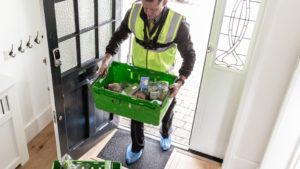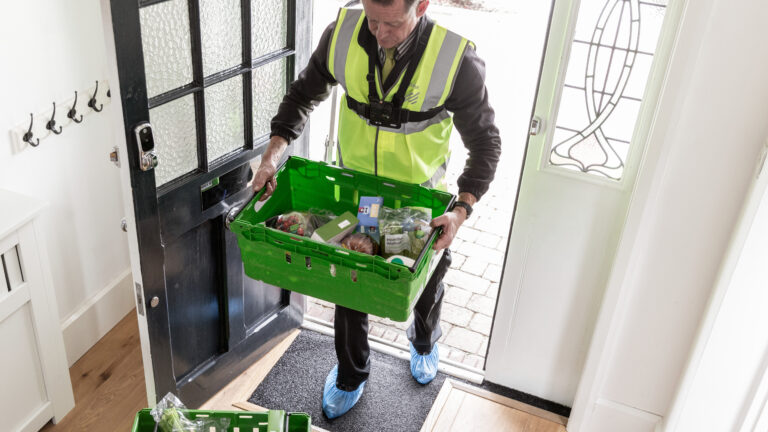Online grocery retail will be a long-term beneficiary of a change in shopping habits induced by the response to the COVID-19 pandemic, experts have predicted, with major consequences for the UK logistics property market.
Kevin Mofid, head of logistics and industrial research, at Savills: “In the UK we have already seen consumers flock to purchase items from grocery and online retailers, which will impact on the UK logistics property market not just now but going forwards.
 “A longer-term unintended consequence for the market could be the further growth of online grocery shopping, as many consumers, who previously didn’t use such services, become more familiar and continue to use it in the future. Should this happen grocers will have to add capacity at a faster rate than previously anticipated.
“A longer-term unintended consequence for the market could be the further growth of online grocery shopping, as many consumers, who previously didn’t use such services, become more familiar and continue to use it in the future. Should this happen grocers will have to add capacity at a faster rate than previously anticipated.
Len Rosso, head of industrial and logistics at Colliers International, said: “The industrial and logistics sector is better-placed than some other real estate sectors such as leisure and retail to weather this storm as all age cohorts will increasingly adjust to shopping online.”
Research by Cushman & Wakefield backs the sentiment: “The virus has increased the rate of structural change from ‘bricks and mortar’ to ‘online’ particularly in the food sector which to date has struggled to match the transition of non-food retailing.
 “Parents and grandparents are being taught how to order food online and we expect that many of these inadvertent new converts will continue to use this platform long after the virus has declined.”
“Parents and grandparents are being taught how to order food online and we expect that many of these inadvertent new converts will continue to use this platform long after the virus has declined.”
It is though that for every £1 billion spent online, retailers require 930,000 sq ft of warehouse space.
Earlier this week Kantar WorldPanel reported that UK grocery sales reached £10.8 billion in the four weeks to 22 March, which was higher than even Christmas spending levels.
Kantar said grocery spend online was up 13% on the same period in 2019.







